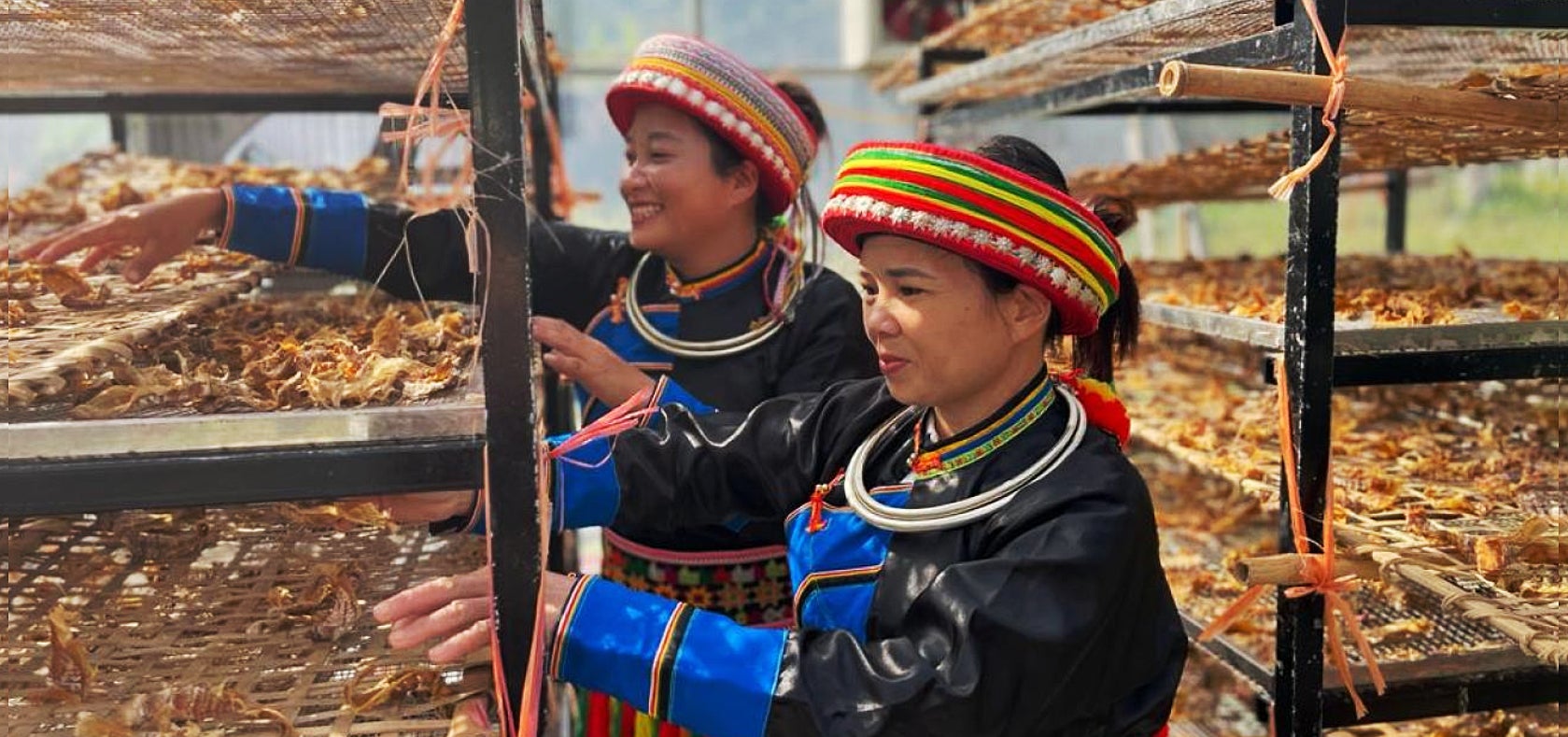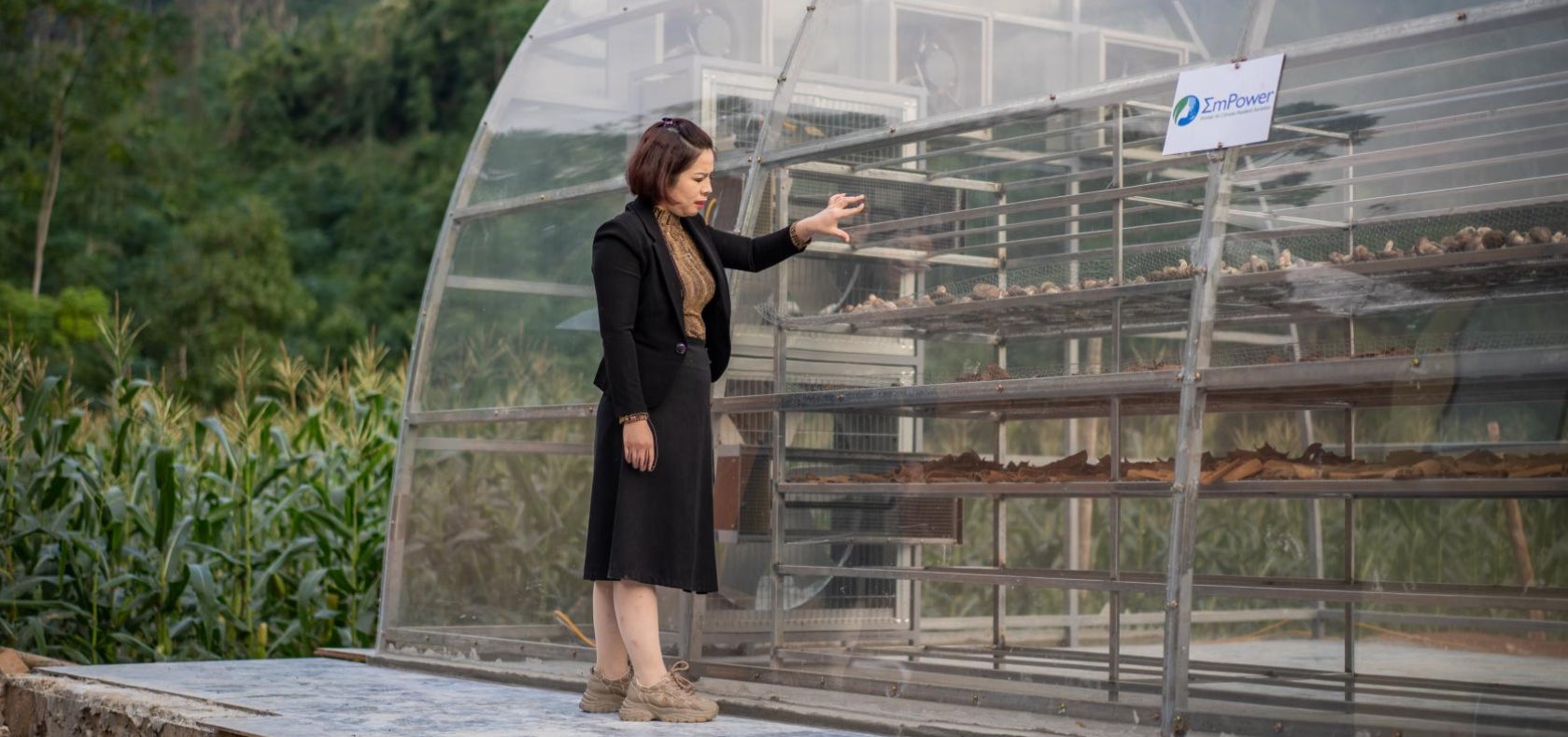Fueling Change: How women are leading Viet Nam’s just energy transition
Date:
Originally published on the United Nations Sustainable Development Group website, 17 October 2024

In Viet Nam, climate change is causing storms, floods, and droughts to occur more often and with greater intensity. Dang Thi Nga, a member of a tea cooperative in Viet Nam’s Bắc Kạn Province, has experienced these impacts firsthand. “We had a lot of problems with storms and flooding. Everything was destroyed, including my rice field and my forest,” she says.
Climate change is putting millions of people at heightened risk of injuries, displacement, food and water insecurity, and loss of livelihoods. Women like Dang Thi Nga often bear the brunt of these impacts in coping and rebuilding after a crisis. A lack of access to essential resources including information, financing and technology means that women tend to face greater challenges than men in such contexts.
The EmPower: Women for Climate-Resilient Societies (EmPower), a joint United Nations programme led by UN Women and the UN Environment Programme (UNEP), seeks to address some of these challenges. Guided by the principle of Leaving No One Behind, the programme provides low interest loans to renewable energy enterprises led by women and individuals from marginalized communities in the Asia-Pacific region, helping finance climate-friendly solutions to build resilience.
“We are incredibly proud to be working with EmPower ,” says Pauline Tamesis, UN Resident Coordinator for Viet Nam. “Tackling gender equality through climate action and decentralized clean energy initiatives ensures that Viet Nam can generate large multiplier effects across the Sustainable Development Goals (SDGs). In this way, we promote economic prosperity, while protecting human and environmental wellbeing. To achieve EmPower’s full potential, we also need to bring together diverse expertise of business, development partners and UN entities.”
Making the economic case
Renewable energy and clean technologies offer women-led Micro, Small, and Medium-Sized Enterprises (MSMEs) the chance to adapt to climate change and participate in the energy transition. However, accessing the funds they need to integrate climate-friendly technologies into their businesses can be challenging for women and other marginalized communities.
Persistent gender norms add to the challenges women entrepreneurs face. They struggle to secure loans from banks and are often met with skepticism over their ability to apply and use renewable energy technology or repay loans. These entrenched attitudes that undermine women’s acces to technology and finance often hinder them from pursuing entrepreneurial and leadership roles.
Unlocking investment for women and marginalized communities
Partnerships with financial institutions are crucial in expanding financial access for women and underserved communities. With support from EmPower, the tea cooperative was able to obtain a loan at a more affordable rate.
"Through EmPower, we are developing financial schemes and instruments tailored specifically to meet the needs of women entrepreneurs," explains Parimita Mohanty, Programme Management Officer, Renewable Energy at UNEP. “We utilize various strategic interventions to unlock public and private capital and direct it into the development and expansion of clean energy and low carbon technologies for enterprise development.”

The cooperative used the loan to purchase a solar-powered drying house, making it possible to dry products in weather that is becoming increasingly unpredictable.
“In the past, drying tea and bamboo shoots was very difficult because we had to keep an eye on them for fear of rain. If it rained and the products could not be collected in time, they were all ruined,” says Dang Thi Nga
The drying house has not only increased productivity but also the quality of their products, leading to higher income for the community.
“It is encouraging to see efforts in Viet Nam and across the Asia-Pacific region to support women entrepreneurs and ensure they can access the knowledge, funding and technology they need. We need more women in leadership positions in the renewable energy sector to ensure a just energy transition,” says RC Tamesis.
“By focusing on social inclusion, we not only empower these groups but also strengthen resilience and drive progress toward our global climate targets,” adds UNEP’s Mohanty.
As Viet Nam transitions to a greener economy, it is part of a global shift expected to create 24 million new green jobs by 2030. Viet Nam is also one of the countries implementing the Just Energy Transition Partnership and is committed to achieving a carbon neutral economy by 2050.
World leaders recently reaffirmed their commitments to enhancing international cooperation on climate action and scaling up finance through the Pact for the Future, a key outcome of the Summit of the Future held in September 2024. Gender equality is indivisible from this and in driving progress across all SDGs.
By fostering alternative livelihoods and reducing emissions through renewable energy and clean technologies, programmes like EmPower highlight the transformative potential of women-led MSMEs. These initiatives not only contribute to achieving carbon neutrality but also empower women economically. Holistic approaches such as this are essential for meeting global goals and ensuring a sustainable and equitable future.
For more information about the UN's work in Viet Nam, visit vietnam.un.org